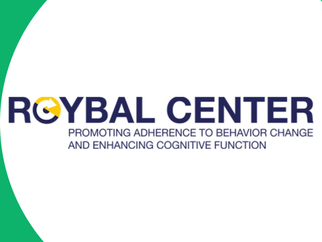top of page

Search


Why and How a Behavioral Intervention Works: A Panel Discussion Exploring Mechanisms
Webinar Series Overview This panel discussion, led by the Establishing Mechanisms of Benefit to Reinforce the Alzheimer's Care Experience (EMBRACE) AD/ADRD Roybal Executive Committee, explores the ins and outs of mechanisms, particularly within the context of dementia care interventions. The webinar will coincide with the release of a guidance document on mechanisms written by Drs. Hodgson and Gitlin (the Co-Leads of the EMBRACE Behavioral and Intervention Development Core).


IMPACT Collaboratory Requests Applications for Health Care Systems Scholars Program
The National Institute on Aging (NIA) Im bedded P ragmatic A lzheimer’s Disease (AD) and AD-Related Dementias (AD/ADRD) C linical T rials (IMPACT) Collaboratory has launched a Request for Applications for the 2026 Health Care Systems Scholars Program. The IMPACT Collaboratory will fund up to two Health Care System Scholar Awards. Each award will provide $120,000 in total direct costs for a 1-year mentored experience designed to support immersion of investigators (MD, PhD,


Upcoming Conferences, Workshops, & Webinars
February 27, 2026 : The University of Texas at Austin Center for Aging and Population Sciences (CAPS): Moonshot Ideas for AI & Robotics in Dementia Prevention & Care . Hybrid. March 2, 2026 : University of Minnesota Life Course Center (LCC): Lessons from the Collaborative on Media and Messaging for Health and Social Policy . Hybrid. March 2, 2026 : University of Pennsylvania Population Aging Research Center (PARC): ADRD Biomarker Pilot (PARC Aging Chats) . Hybrid.


Call for Applications, Proposals, and Papers from NIA Supported Centers and Networks
The Center to Accelerate Population Research in Alzheimer’s (CAPRA) Pilot Core is seeking novel, population-based Emerging Scholar Pilot Proposals that address CAPRA’s main thematic areas including health policy and healthcare system impact on acute and long-term care outcomes; diffusion of new diagnostics and drugs into practice; heterogeneity in disease risk, care access, and outcomes across populations; or innovative applications of population data. Learn more and submi


New Funding Opportunities and Announcements from NIA and NIH
NEW! PA-26-002 : NIH Collaborative International Research Project (Parent PF5 Clinical Trial Optional) . Multiple receipt dates through May 07, 2029. The National Institutes of Health (NIH) seeks to advance its mission by maintaining strong, productive, and secure international research collaborations in support of the NIH mission. The NIH Collaborative International Research Project (Parent Announcement) supports international research collaborations. This opportunity speci


AFAR Webinar: Unpacking Biohacking for Longevity
Thursday, March 12, 2026 | 12-1pm ET / 9-10am PT Biohacking is a rapidly rising approach to extending health that combines science, lifestyle changes, smart tools, proactive diagnostics, and actionable biodata, with aims of "optimizing" cellular function and vitality. At its most accessible, biohacking approaches include tracking through wearables and biosensors and lifestyle interventions like diet and sleep. At its most extreme, other biohacking strategies include conducti


Dementia Care and Caregiving Research Summit
The Dementia Care and Caregiving Research Summit will be held virtually on March 17-19, 2026. The Summit offers a vital opportunity to reflect on the progress we have made in dementia care and caregiving research, as well as to address the persistent and emerging needs of people living with dementia, their care partners, and the communities and health systems that support them. The 2026 Dementia Care and Caregiving Research Summit will cover: Economic impacts of dementia Ind


IMPACT Grand Rounds: Learn As you Go (LAGO) Design
Thursday, February 19, 2026 | 12:00 – 1:00 pm ET Donna Spiegelman, Sc.D. , is the Susan Dwight Bliss Professor of Biostatistics at Yale University’s School of Public Health and Director of Yale’s Center for Methods in Implementation and Prevention Science (CMIPS). She is a former NIH Director’s Pioneer Award recipient (2014–2020), recognized for her work developing innovative methods for implementation and prevention science. Dr. Spiegelman’s research focuses on the develo


Intervention Optimization: Science and Practice, Present and Future
The first-ever conference on intervention optimization will take place May 18-20, 2026 in Bethesda, MD. This in-person event will bring together a diverse group of scholars to discuss intervention optimization, including the Multiphase Optimization Strategy (MOST), and to spark new collaboration across methods and application areas. The Agenda Will Feature: The science of intervention optimization, including MOST and related frameworks New experimental designs and associated


Webinar with Dr. Giampiero Tarantino: Boosting Physical Activity After Interventions
Join a webinar on Thursday, February 5, 2026, at 1:00 pm ET, featuring Dr. Giampiero Tarantino, a postdoctoral researcher at the University of Southern Denmark in Odense. Dr. Tarantino’s work centers on adolescents’ physical and mental health in school settings, especially within physical education classes. In this talk, Dr. Tarantino will present findings from a new systematic review and meta-analysis of 40 randomized controlled trials evaluating “booster” strategies for mai


The Next Generation of Implementation Strategy Testing: Opportunities for Investigator Initiated Research at NHLBI: Dr. Cara C. Lewis
Friday, January 30, 2026 | 12:00 – 1:00 pm ET Cara Lewis, PhD Deputy Director Center for Translation Research and Implementation Science (CTRIS, NHLBI) Cara C. Lewis, PhD, is the Deputy Director of the Center for Translation Research and Implementation Science (CTRIS) at the National Heart, Lung, and Blood Institute within the National Institutes of Health. Dr. Lewis has a Ph.D. in clinical psychology with expertise in advancing pragmatic and rigorous measures and methods for
bottom of page


